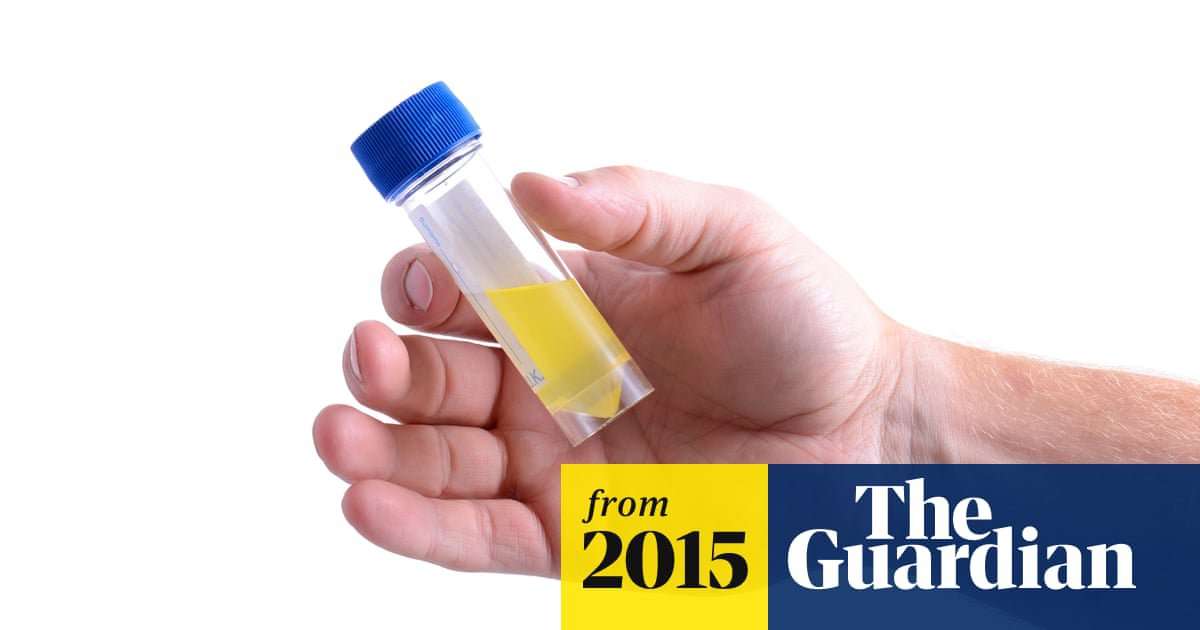American and Russian astronauts use separate water filtration systems on ISS, as Nasa astronauts also collect Russian urine when available to increase supply
This article is more than 4 years old
What’s the difference between American and Russian astronauts on the International Space Station? The Americans drink their urine, the Russians don’t.
“It tastes like bottled water,” Layne Carter, water subsystem manager for the ISS at Nasa’s Marshall Space Flight Center told Bloomberg. “As long as you can psychologically get past the point that it’s recycled urine and condensate that comes out of the air.”
Condensate is the collected breath and sweat of the crew, shower runoff, and urine from animals on board the station. Specifically, 12 mice that came with the Japanese cargo ship, the Kounotori 5 or White Stork, that successfully docked on Monday.
Ninety-three percent of all the water on board is reclaimed, according to a video posted by Canadian astronaut Chris Hadfield while he was on the space station in 2013.
“We can recycle about 6,000 extra liters of water for the station each year,” Hadfield said.
While the Americans are the only ones who filter their urine, both sets of astronauts gather condensate from the air. They have separate water systems and have never agreed on how to filter their water, according to Bloomberg.
Since the launch of the Soviet Mir space station in 1986, the Russians have used silver in its ionic form. Nasa has made use of iodine since 1981, when the space shuttle program began. The Americans plan to start using silver since it doesn’t have to be filtered out before consumption, but Carter said he likes that the Americans and Russians employ different methods.
“It really makes a lot of sense to have dissimilar redundancies in the space station in case one of the systems has problems,” Carter told Bloomberg.
The station also has approximately 2,000 liters of backup water in case of an emergency. The water is split between the American and Russian sections of the station.
But the US water recycling system produces more than the Russians’ does. Nasa astronauts don’t just filter their own urine – they also use their Russian colleagues’.
“We collect it in bags, and then the crew hauls it over to the US side,” Carter told Bloomberg. “We don’t do 100% of the Russian urine. It depends on our time availability.”
In Hadfield’s video, he defended the consumption of filtered urine and condensate.
“Before you cringe at the thought of drinking your leftover wash water and your leftover urine, keep in mind that the water that we end up with is purer than most of the water that you drink at home,” he said. “That makes the International Space Station its own self-contained environment. That’s a critical step towards living for long periods off of planet Earth.”

ninelives1 on February 25th, 2020 at 23:14 UTC »
So this is actually my job. Running the urine processing equipment from mission control, among many other things. The thing you have to understand is that the ISS is a huge collaboration where everything is a part of one giant trade with Russians. They give us Soyuz rides. We scrub a lot of CO2 in the shared atmosphere. They give us their urine and we process it.
The Russians do not refuse to drink the processed urine. In fact, they are currently working on their own urine processor. So this just isn't really accurate.
Also, most of this information is out of date. It's fibe years old. We no longer have to put water in bags as much, for one.
-SandorClegane- on February 25th, 2020 at 16:48 UTC »
The recycled piss on the ISS is infinitely cleaner than the water out of the tap where you live. It surprises me that people with (I assume) a strong scientific background would be so averse to drinking it.
Cuntgrabr on February 25th, 2020 at 16:29 UTC »
If there is ever deep space travel, such methods will be mandatory, all moisture would have to be collected, purified and reused. Im sure collecting ice would also be used, but you can only produce so much water, and once the critical systems water requirements are satisfied, there isn't usually a lot left for anyone else.
When i was on a submarine, the reverse osmosis machines could only produce so much fresh water a day, and if one malfunctioned, as it often did, and water production was halved, it got down right nasty, only the cooks were allowed to bathe regularly, and there was only one washing machine anyway, and its use was regulated, a fun and a not fun time all at once.
Now we never had to drink piss though, lol, we drank so much mountain dew a day that i doubt anyone could tell the difference.